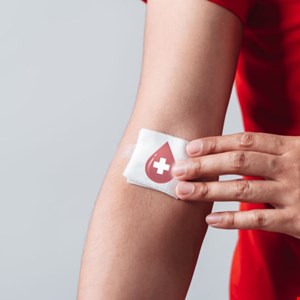- Apple doesn't need better AI as much as AI needs Apple to bring its A-game
- I tested a Pixel Tablet without any Google apps, and it's more private than even my iPad
- My search for the best MacBook docking station is over. This one can power it all
- This $500 Motorola proves you don't need to spend more on flagship phones
- Finally, budget wireless earbuds that I wouldn't mind putting my AirPods away for
NHS Appeals For Blood and Volunteers After Cyber-Attack

The NHS is fighting on several fronts to recover from the impact of a crippling ransomware attack last week, issuing urgent appeals for blood donors and volunteers, according to reports.
Several London hospitals, including King’s College hospital and Guy’s and St Thomas’, were impacted by an attack on pathology service provider Synnovis last Monday.
It had an immediate and significant knock-on effect on blood transfusions and test results, and reportedly led to the cancellation of over 200 emergency and life-saving operations, as well as hundreds of urgently referred appointments for suspected cancer patients.
Now the health service is launching an appeal for O blood-type donations to help mitigate the impact of the attack, which has made it harder for doctors to match patients’ blood types as quickly as usual.
O-negative can be safely given to all patients without needing to check their type first, while O-positive can be given to anyone with a positive blood type – which is roughly three-quarters of the population.
Blood stocks, which are reportedly low after two bank holidays and a week of half-term, need to be continually restocked – lasting only 35 days or so.
As well as more blood, hospitals impacted by last week’s supply chain attack are reportedly calling for medical students to volunteer their help to minimize the impact of the incident on patient care.
The BBC reported that trainee medics at Guy’s and St Thomas’ trust are being asked to put in 10-12-hour shifts as “floorwalkers” – that is, signing blood transfusion bags and hand delivering blood tests, among other things.
The attack, believed to be the work of Russian group Qilin, could impact the NHS for weeks, with critical decisions on patient care currently being made by doctors without access to crucial lab results.

